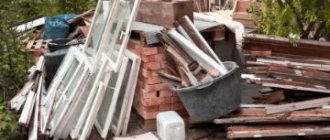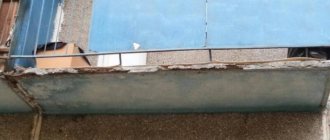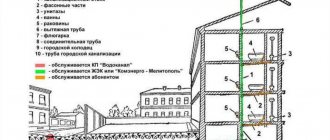The Internet contains a lot of information about the sharp increase in garbage collection tariffs for both residents of apartment buildings and private homeowners, as well as those living in rural areas. Until now, some media outlets are reporting that fees for solid waste removal have increased hundreds of times, thereby generating heated discussions among netizens. In this article we will look at what innovations came into force in January 2021, what is relevant now and how much we will have to pay for garbage in 2021.
Basic Concepts
The legislation, which we will discuss below, uses the following concepts:
- Solid household waste - it is the waste of the population generated as a result of life activities, that is, cooking, cleaning and minor repair work, cleaning of house and common areas, things and furniture that have become unusable. Solid waste is also waste from heating devices, garbage from yards (leaves), etc., generated both from residential premises and from public buildings (hotels, kindergartens and schools, catering organizations).
- Municipal solid waste in accordance with Art. 1 of the Law on Waste is waste from residential premises due to consumption by individuals. In addition, MSW also includes goods that have lost their consumer properties due to people using them in residential premises for personal and domestic needs, as well as garbage from cleaning the territory of settlements (street waste, garbage after being in public areas, beaches).
Essentially, the types of waste are similar. In relation to legislation on waste management paid for by citizens, it is necessary to take into account the waste that is generated directly as a result of meeting household needs. Thus, citizens pay for the removal and disposal of MSW - municipal solid waste (household waste). Read more about calculation, payment and other issues of MSW management.
Question: Many people are interested in whether construction waste falls under the concept of MSW.
The purpose of such a question is clear. When paying for a waste removal utility service, the consumer believes that the remaining building materials should also be removed as part of the service provided. This is wrong. Garbage after renovation is not included in the concept of MSW, so citizens are required to remove it themselves; containers near our houses are intended only for household waste resulting from human activity.
What applies to bulky waste?
A clarifying list of KGM is attached to the resolution:
- large household appliances;
- furniture;
- pipes and plumbing;
- vehicles, as well as their parts;
- waste accumulated as a result of construction work;
- furniture production waste;
- electrical appliances and computers;
- natural waste in the form of branches, tree trunks and fallen leaves.
Construction waste accumulates during the construction or renovation of residential premises, as well as after their completion. This type of waste includes:
- elements of concrete structures;
- parts of wall panels;
- broken brick;
- dried solutions;
- unusable panels, parts of linoleum;
- metal fragments.
The listed categories must not be thrown into ordinary containers intended for waste, the volume of which is 0.75 cubic meters. m, as well as stacked nearby (clause 14 of PP No. 1156), since such actions complicate the work of public utilities and pollute the environment. The amount of large-sized municipal waste per capita, according to legislative standards, is 98 kg per year.
The KGM list does not include waste generated after the demolition and construction of buildings or major repairs. Disposal of such waste is carried out by other legal acts of a regulatory nature.
Federal law on garbage collection from 2021
Back in 2021, President of Russia V.V.
Putin instructed the prosecutor's office to regularly and thoroughly check the implementation of legislation on waste management. Especially in the field of livestock farming and hazardous production, where compliance with disposal rules is especially important. In the May decrees, the President, in a separate paragraph, indicated the need for the complete elimination of unauthorized landfills by 2024. In pursuance of the order of the first person of the state, prosecutors are filing claims against the administration for the liquidation of small and large landfills in cities, which are satisfied by the courts. In addition, back in 2021, changes were made to the Waste Law on the need to separate waste into food and toxic. But until now, the idea of multi-colored containers has not yet become widespread. It should be noted that with new changes in the legislation on waste removal, the introduction of separate waste collection is becoming more active, including in the private sector.
Today in Russia there are several legal acts that jointly regulate waste issues:
- Federal Law “On Licensing of Certain Types of Activities” dated May 4, 2011 No. 99-FZ, to which, with the exception of the general rules for the validity of licenses and the frequency of inspections of licensees, no significant changes have been made over the past year. This law approves the requirements for the activities of organizations related to the disposal of waste of hazard classes 1-4.
- Federal Law “On Environmental Protection” dated January 10, 2002 No. 7-FZ, to which some amendments were made in 2021 on the creation of an automatic system for monitoring emissions and discharges of pollutants that negatively affect the state of the environment.
- Federal Law “On the Sanitary and Epidemiological Welfare of the Population” dated March 30, 1999 No. 52-FZ, according to which, starting from 2021, sanitary protection zones are established by the federal supervisory authority, and the regulations on sanitary protection zones are approved by the Government of the Russian Federation.
Along with the above, the main one in the area under consideration is the federal law “On production and consumption waste” dated June 24, 1998 No. 89-FZ (many call it the law on garbage removal). It regulates the rules of accounting, regulation, reporting and delimitation of actions during waste removal. Changes to this law were made twice in 2021 - in July and December, and came into force in January 2021. Based on the law, the Russian Government Resolution No. 1156 dated November 12, 2016 “On approval of the procedure for handling municipal waste” is in force, which reveals details rules of law and rules are established.
Where to complain if they don't take out the garbage?
Appendix 1 to Government Decree No. 354 specifies the requirements for the frequency of garbage collection, which may vary depending on the region where the service is provided. The following standards apply to Moscow and the Moscow region:
- Garbage removal daily, once in the summer;
- Every three days - in winter;
- Allowable delay: in summer - 1 day, in winter - 2 days.
If the schedule established by law is violated, homeowners can file a complaint with the administration, management company, housing and communal services department, state housing inspectorate, Rospotrebnadzor. In case of malicious violations of legal requirements, you can send a complaint to the prosecutor's office.
Rules for handling MSW, innovations
The Decree of the Government of the Russian Federation established the rules for waste removal, including:
- procedure for concluding an agreement for the provision of waste management services;
- the procedure for their transportation;
- disposal procedure, disposal safety;
- grounds on which an organization can be deprived of the right to engage in waste removal.
From 2021, the management of MSW on the territory of each subject must be provided by a regional operator in accordance with the regional (territorial) waste removal program. Only one operator must be selected based on the results of the competition, or there may be several. This is decided at the local level, based on the needs of the population.
Tariffs are also determined by local authorities , who prepare a waste management scheme that must be followed by operators providing their services on the basis of contracts concluded with consumers.
The rules regulate the responsibilities of regional operators who must, in strict compliance with laws regarding the preservation of the environment, collect, transport, process, dispose of, neutralize and dispose of solid waste. The operator does all this independently or with the involvement of other operators if necessary.
Thus, an agreement must be concluded between the executive body of the subject and the operator, according to which the organization becomes authorized to provide waste removal services in the region. In turn, the operator is obliged to take measures to conclude an agreement with consumers, to whom he must send forms. If your region does not have an agreement with a regional operator, you have the right to enter into an agreement with other organizations if they have a license.
For example, the Decree of the Government of the Moscow Region dated December 26, 2016 No. 999-47 “On the content and procedure for concluding an agreement between the authorized executive body of state power of the Moscow Region and the regional operator for the management of municipal solid waste” approved the procedure for collecting, transporting, and recycling waste on the territory of the Moscow Region. areas. It provides for the rights and obligations of the parties and regulates actions to provide the relevant service. Based on this agreement, the operator must enter into contracts with citizens.
However, a written form of the agreement is optional . Thus, according to the Letter of the Ministry of Construction of Russia dated October 16, 2018, the beginning of the operator’s work should be considered the date of signing the agreement between him and the municipality. From this moment on, the owners of residential premises pay for the work of the service provider, even without drawing up a separate document.
At the same time, the operator is obliged to consider complaints about improper provision of services, and many seek to conclude a written agreement that clearly states the rights and obligations of the parties. An agreement is also needed in cases where the municipality has not prepared an agreement and there is no regional operator in the subject.
Benefits and discounts for individual housing construction
For some categories of Russian citizens, payments for utility services are calculated taking into account benefits. Since waste removal has been equated with housing and communal services, the rules also apply to the area of solid waste management. Preferential amounts are calculated as a percentage and amount to:
- Minus 30% - for pensioners no older than 70 years;
- Minus 50% - for citizens aged 70-80 years;
- Minus 100% (services are provided free of charge) for people over 80 years of age.
The services of regional operators are also subject to discounts, benefits, and subsidies provided to WWII Veterans, disabled people, and low-income categories of citizens.
How to conclude a garbage removal agreement?
It must be drawn up according to the standard form provided for in paragraph 5 of Art. 24.7 of Law No. 89-FZ. This document will be called an agreement for the provision of services for the management of municipal solid waste. It should indicate the following:
- Place, date of conclusion.
- The name of the organization that is the regional operator, its location and contact details, as well as information about the consumer (passport details, residential address).
- Responsibilities of the operator, who must accept solid municipal waste at the specified location and in the amount stipulated by the contract. In addition, the document must indicate the obligation of transportation, processing, disposal at the price of the approved tariff. The operator is also obliged to provide information necessary for the consumer (for example, about the time of removal, about the landfill where disposal will take place).
- Obligations of the consumer to pay for services in accordance with contractual tariffs and terms, to store waste only in designated places (at special sites). Consumers must also appoint a person responsible for interaction with the regional operator as part of the execution of the contract, and to prevent damage to containers.
- The method of storage is indicated, namely, where the waste prepared for removal is placed (chambers, containers, bags, bins), their location according to the diagram.
- Duration of the contract (usually until the end of the license or agreement under which the operator is such).
- The operator’s obligation to respond to complaints related to the performance of the contract and to replace containers that have become unusable.
- The right of the operator and consumer to reconcile calculations and keep the necessary records of removed waste. If the calculations do not correspond to the actual ones, the consumer, together with the operator’s representative, draw up a report in the presence of at least two disinterested persons, using video and photographic recording. After which the act is sent to the operator’s location with a requirement to eliminate the identified violations (a copy to the municipality). The operator has the right to write objections in case of disagreement. If the act is not signed by the operator within three days, it is considered agreed upon.
- Signatures of the parties.
.
The standard form existed before. But it contained a clause on the operator’s responsibility for waste management from the moment it is loaded into a garbage truck in places of accumulation, and the burden of maintaining containers (garbage bins) near the house fell on the owners of the apartment building. Now there is no such item.
The application should include a diagram of the location of the waste accumulation site and access roads to it.
In addition, from January 1, 2021 to the present day, the rule is in force - no later than December 25, on the eve of the coming year, the regional operator is obliged to send to local governments information on the number of garbage containers and bins placed, indicating their volume, as well as the places where these containers planned to be placed. Such information is necessary to maintain a unified register of places (sites) for the accumulation of solid municipal waste. Thus, the authorities are trying to control the number of organized waste collection sites and ultimately prevent unauthorized dumping.
You can view the registers of places (sites) for accumulation of MSW on the official website of the municipality or on the portal of the constituent entity of the Russian Federation. The register must contain data on technical characteristics (number of containers, location), their owners, etc. For example, a register has already been created on the website of one of the districts of the Kirov region, which every resident can familiarize themselves with.
Survey: how much more have you started paying for garbage collection since January 1, 2021?







